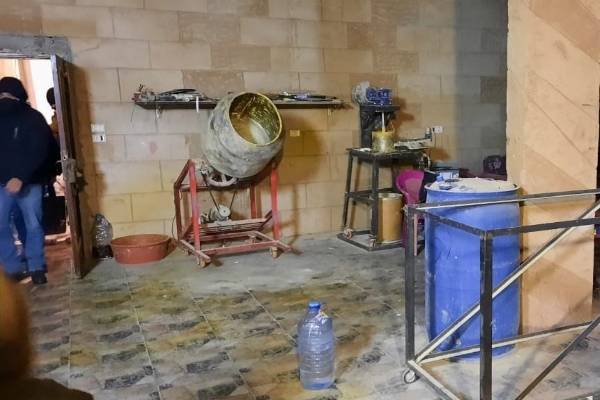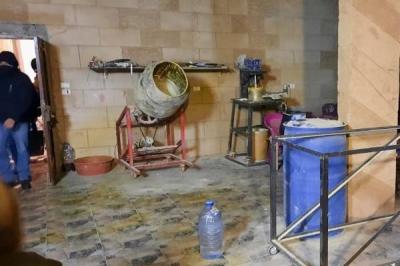Under the title "What is the story of Captagon factories in Syria and Lebanon? ... and the target market," Sky News Arabia published a report about Captagon pills, addressing the manufacturing locations and target market. The report highlighted that the introduction of Captagon factories in northeastern Lebanon began in 2011, the year of the outbreak of the Syrian revolution and the security breakdown along the Lebanese-Syrian border. Captagon production became active in areas beyond government control within territories adjacent to the Lebanese-Syrian border. These areas include Qusayr and the Damascus countryside, which were firmly controlled by groups affiliated with the Syrian regime and Hezbollah. By 2017, more than 60 factories, both large and small, had been documented for producing stimulant Captagon pills, most of them located in northern Bekaa, Lebanon, along the border with Syria. These areas were under the influence of known security forces aligned with Syria.
The production from these factories was marketed under a de facto authority and the target market was the Kingdom of Saudi Arabia, where Lebanese security forces collaborated with Saudi security forces to uncover dozens of smuggling networks from Lebanon into the kingdom. In a leaked interview in 2019, one of the chemical engineers working in these factories revealed that a factory serves as a pharmaceutical lab, importing equipment from abroad under the guise of making pharmaceuticals and medical supplies, requiring only a biochemist to produce stimulant pills that keep a person awake for 48 consecutive hours.
The largest Captagon factory in Lebanon was discovered in 2014 beneath the Al-Zahra Mosque in Baalbek, northern Bekaa, with the target market always being Saudi Arabia. The aforementioned chemist disclosed to a specialized website that the main materials used in Captagon production include caffeine, corn starch, and formic acid, which are smuggled into Lebanon from Syria through illegal crossings. He also mentioned that the pills were packaged in boxes holding 40,000 pills each, sold for $5,000. One of the largest smuggling operations occurred in 2017, where Captagon pills were concealed inside plastic potatoes designed to resemble real potatoes; the factory exporting these was imported from China, and the plastic potatoes filled with Captagon pills were seized in Saudi Arabia.
At the beginning of 2021, a small factory was raided in the town of Younin near Baalbek, resulting in the confiscation of more than 3 kilograms of Captagon pills. Over recent years, authorities have apprehended numerous smugglers, the most notable being an Arab prince in October 2015, who tried to smuggle about two tons of Captagon pills packaged in parcels on a private plane headed from Beirut to Saudi Arabia. Additionally, in April, over 800,000 Captagon pills worth approximately $12 million were discovered hidden in a refrigerated truck headed to "an Arab country."
Captagon pill factories are active in several areas of Lebanon, most notably in Bekaa (East) and northern regions, with production also occurring in Syria and Iraq, specifically exporting to Saudi Arabia, according to a report by the French Observatory for Drugs. The United Nations Office on Drugs and Crime classifies Captagon as "one of the stimulant amphetamines," typically a mixture of amphetamines, caffeine, and other substances.




